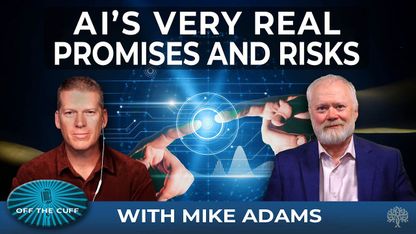
In a recent announcement, the university explained that the new name is designed to be more inclusive and less intolerant because, in case you didn't know, there are far more sexual orientations and genders beyond just gay, lesbian, bisexual, male, female and transgender these days.
So after "careful consideration," the announcement adds, the center decided to rename itself to "better align" with its stated mission, which involves using "an array of other language" to describe people of varying gender and sexual identities.
"There is a responsibility for institutions to uplift and support the voices of the students on its campus often silenced, in the most inclusive and effective way possible," stated undergraduate student Simone Williams, whose grammatically-incorrect gender pronoun preferences include "they" and "them."
"Changing the name to Gender & Sexuality Campus Center tells students across all identities they can be heard," Williams added. "There is a space here that doesn't require labels or binaries. As culture shifts we must shift, I'm glad the staff in the Center know that."
The name change was reportedly unveiled during the University of Wisconsin's "Rainbow Graduation Ceremony," which is specifically tailored to students who don't accept their natural biological sex or gender identity.
The school apparently spent a lot of time and money coming up with the new name, as it evaluated feedback from students in the form of school paper editorials, in-person "open sessions," and anonymous feedback. It was ultimately determined that nobody would feel left out if the name was simply a generic reference to any and all forms of gender identity and sexual preference.
Institutions of "learning" all across the country are going sexuality and gender identity crazy as they strive to keep up with all the changes
In a statement made to Campus Reform, UW-Madison spokesperson Meredith Mcglone explained that the decision to change the LGBT Center's name also largely hinged upon the fact that many other schools across the country are doing the same thing.
Duke University, for example, recently changed the name of its LGBT Center to "The Center for Sexual and Gender Diversity," which its director claims is more inclusive.
What do these centers do, exactly? At least at UW-Madison, they offer "education" courses on things like "Beyond the Binary: Gender 101," which teaches students how to make up new gender identities with which they can demand that other people refer to them by new, made-up gender pronouns. There are also classes on "LGBTQ-affirming healthcare," which instructs students about how to modify their physical attributes in order to look like another gender or sex.
"The Gender and Sexuality Campus Center provides education, outreach, advocacy, and resources for UW-Madison student communities and their allies to improve campus climate and their daily experiences," Mcglone explained to Campus Reform.
Some campuses like the City University of New York (CUNY) - Guttman are even going so far as to actually enforce the use of alternate, made-up gender pronouns on campus by normal students, claiming that adhering to other people's chosen gender identities is important to help to eliminate the "gender binary."
"If you have this privilege (of having an obvious gender identity that matches your biological sex) yet fail to respect someone else's gender identity, it is not only disrespectful and hurtful but also oppressive," explains a document recently put forth by CUNY - Guttman that attempts to justify forcing people to adhere to its new gender pronoun agenda.
Sources for this article include:
Please contact us for more information.























